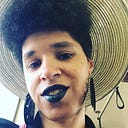Black Women Helped Build House Music. Their Credit Is Often Left off Records.
CeCe Peniston and Martha Wash, among others, speak out on their challenges and triumphs
In the early 1980s, house music emerged as a new musical force emanating out of Black gay clubs such as Chicago’s Warehouse and Muzic Box and New York City’s Paradise Garage. Evolving out of disco, house took the soul, funk, and gospel roots of that music stripped them down and adapted them to the new technologies of synthesizers and drum machines to make the dance floor jack. While many of the men who pioneered the genre like Frankie Knuckles, Ron Hardy, and Larry Levan have had their tales anthologized, the stories of Black women who helped usher in the new music as DJs, producers, and vocalists have often been sidelined, their credit left off of records and out of histories.
Dance divas whose powerful voices had dominated underground discos since the 1970s, such as Loleatta Holloway, Jocelyn Brown, and Martha Wash were frequently remixed and sampled by the pioneering DJs of the movement. “The music just evolved,” Wash says. “The DJs that I was familiar with at the time, Frankie Knuckles and another guy who had remixed some of my songs, Steve ‘Silk’ Hurley, they just started creating their own sound and was calling it ‘house music.’ More…

